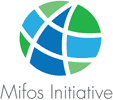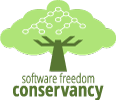Software methodologies
Taking a step back from the code, how do you actually get things done? What can you do to ensure that you iterate rather than blindly head towards what you think stakeholders want? How can you give yourself and your team a better chance of getting things right—and give your company the best shot at leading the pack? Hear best practices and case studies on how to make a difference by taking a hard look at the ‘how’ of how you are delivering and deploying software.
 Brent Laster (SAS)
Brent Laster (SAS)
 VM Brasseur (Juniper Networks)
VM Brasseur (Juniper Networks)
 Heidi Helfand (Procore Technologies)
Heidi Helfand (Procore Technologies)





















 Rachel Roumeliotis (O'Reilly),
Danese Cooper (NearForm),
Georg Grütter (Bosch Software Innovations GmbH),
Gil Yehuda (Verizon Media),
Ashley Wolf (Verizon Media),
Christopher Litsinger (Comcast Cable),
Russell Rutledge (Nike),
Silona Bonewald (Hyperledger),
John Landy (Ericsson),
Shelly Nizri (Elbit Systems),
Stephen McCall (Fidelity Investments),
Shreyans Dugar (Fidelity Investments),
Alolita Sharma (Amazon Web Services),
Daniel Izquierdo (Bitergia),
Erin Bank (CA Technologies),
Jim Jagielski (ConsenSys | Apache Software Foundation),
Georg Grütter (Bosch Software Innovations GmbH),
Guy Martin (Autodesk),
Klaas-Jan Stol (University College Cork),
Daniel Izquierdo (Bitergia),
Danese Cooper (NearForm),
Adam Baratz (Wayfair)
Rachel Roumeliotis (O'Reilly),
Danese Cooper (NearForm),
Georg Grütter (Bosch Software Innovations GmbH),
Gil Yehuda (Verizon Media),
Ashley Wolf (Verizon Media),
Christopher Litsinger (Comcast Cable),
Russell Rutledge (Nike),
Silona Bonewald (Hyperledger),
John Landy (Ericsson),
Shelly Nizri (Elbit Systems),
Stephen McCall (Fidelity Investments),
Shreyans Dugar (Fidelity Investments),
Alolita Sharma (Amazon Web Services),
Daniel Izquierdo (Bitergia),
Erin Bank (CA Technologies),
Jim Jagielski (ConsenSys | Apache Software Foundation),
Georg Grütter (Bosch Software Innovations GmbH),
Guy Martin (Autodesk),
Klaas-Jan Stol (University College Cork),
Daniel Izquierdo (Bitergia),
Danese Cooper (NearForm),
Adam Baratz (Wayfair)
 Ram Gopinathan (T-Mobile)
Ram Gopinathan (T-Mobile)
 Darren Bathgate (Kenzan)
Darren Bathgate (Kenzan)
 Stormy Peters (Red Hat)
Stormy Peters (Red Hat)
 David Asabina (Asabina GmbH)
David Asabina (Asabina GmbH)
 Eric Normand (PurelyFunctional.tv)
Eric Normand (PurelyFunctional.tv)
 John Sawers (Emotional API)
John Sawers (Emotional API)
 Georg Grütter (Bosch Software Innovations GmbH)
Georg Grütter (Bosch Software Innovations GmbH)
 Chase Douglas (Stackery)
Chase Douglas (Stackery)
 Josh Bressers (Elastic)
Josh Bressers (Elastic)
 Erica Stanley (SalesLoft)
Erica Stanley (SalesLoft)
 Stephen Cleary (Faithlife)
Stephen Cleary (Faithlife)
 Sandi Metz (TorqueForge)
Sandi Metz (TorqueForge)
 Elmer Thomas (Twilio SendGrid)
Elmer Thomas (Twilio SendGrid)
Sponsorship Opportunities
For exhibition and sponsorship opportunities, email oscon@oreilly.com
Partner Opportunities
For information on trade opportunities with O'Reilly conferences, email partners@oreilly.com
Contact Us
View a complete list of OSCON contacts
©2018, O'Reilly Media, Inc. • (800) 889-8969 or (707) 827-7019 • Monday-Friday 7:30am-5pm PT • All trademarks and registered trademarks appearing on oreilly.com are the property of their respective owners. • confreg@oreilly.com




























